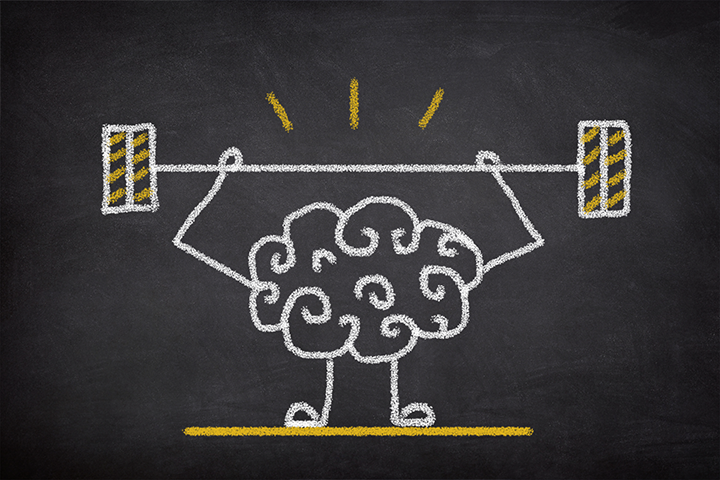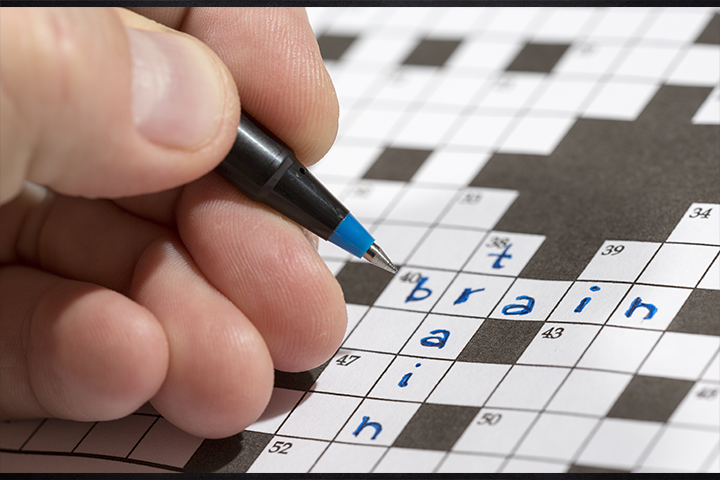Put your mental powers to the test with five fun activities that can help keep your brain sharp.
Solve a Puzzle
Older adults who did daily word or number puzzles scored highest on tests of memory, focus, reasoning and mental processing speed in two 2019 studies from the United Kingdom's University of Exeter. Those older adults who played word puzzles also matched the scores of people eight years younger than they were when taking short-term memory tests.
Bonus booster: If your current puzzle type is starting to seem easy or even boring, move up to a slightly higher level of difficulty.

Dust off Your Board Games
From Monopoly and Scrabble to chess and checkers, playing board games is another fun way to challenge your brain. In a 2020 University of Edinburgh study of more than 1,000 women and men in their 70s, those who played these kinds of games often experienced slower declines in memory and thinking skills, compared to those who didn't have a regular game night.
The study tracked participants since age 11, but researchers found that people who picked up the board game habit later in life also experienced positive brain-health benefits.
Bonus booster: The study above looked at games that come in a box or that you can hold in your hands.
Grab a Stopwatch
Got a minute? Fast brainteasers like these could be mentally stimulating, Dr. Geda says.
Count backward from 100 to 1. Make it more difficult by counting backward by threes, sixes, sevens or nines. Try to count as quickly as you can.
Write down the names of as many movies as you can think of in 60 seconds. Change it up by listing flowers, trees, U.S. state capitals or the names of countries.
Draw a map from memory. Pick your own neighborhood, the downtown of a city you know well or your favorite vacation spot. Bonus booster: Fit a variety of brain challenges into your day or week.
Find Your Rhythm
Physical activity is a proven way to help keep your brain sharp. Combining movement with mental stimulation may be even more beneficial in slowing cognitive decline than either alone, according to recent research.
Consider it the excuse you need to clear some space and take up the cha-cha, the hustle or any other fun, dance-based exercise routine. The CDC recommends starting with a short 5- or 10-minute dance session until you've built up your endurance.
Or try walking around in your own home while you talk on the phone. Make sure you have a safe area without any trip hazards. The areas of the brain that control planning, organizing and focusing may get strengthened by adding in a layer of movement, he explains.
Bonus booster: If you already enjoy dancing regularly, find a new routine to learn. You can search the internet to find instructional dance videos in different styles — everything from ballroom to Broadway to disco.
Tap into Your Inner Artist
Knitting, embroidery, woodworking, painting — pick whatever arts-and-crafts project sounds enjoyable and get creative. Arts and crafts require focus, planning, problem-solving and creativity.
Brain booster: If you've never been much of a hobbyist, it's not too late to start. Ask a friend who crafts to teach you some of the basics to get started or look up how-to videos for different projects on the internet.

Resources for TRS-Care Medicare
Silver Sneakers
- Memberships to thousands of fitness locations — visit as many times as you wish
- Group exercise classes for all abilities — fun activities held outside the gym
- SilverSneakers On-DemandTM — online workout videos that feature tips on fitness and nutrition
- SilverSneakers LIVE — virtual classes and workshops throughout the week
- SilverSneakers GOTM mobile app
Get started today. Visit SilverSneakers.com or call 1-888-423-4632, TTY 711.